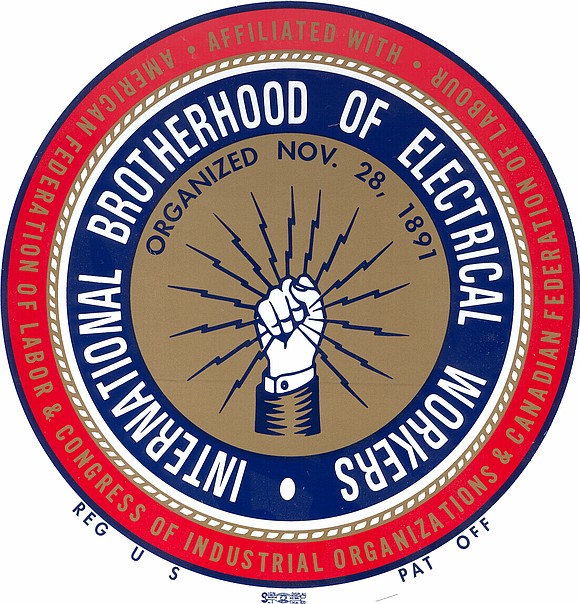Business Manager Tony Sapienza
Automated Meter Reading Has Big Impact on Workers; CMP Asks PUC for Rate Increase to Implement System
May 9, 2008 - Bangor Hydro Electric and Unitil have already made the switch to various forms of automated meter reading, resulting in the loss of dozens of Union jobs. Now, Central Maine Power has asked the Maine Public Utilities Commission to grant a significant rate increase to pay for the installation of an automated system at Maine’s largest electric utility.
CMP has thus far refused to talk to IBEW 1837 about how this will affect their employees if it is approved by the PUC. A decision is expected sometime in May. The Company currently has approximately 100 Revenue Data Readers on staff who may be impacted by the proposed change.
The CMP request is part of a $90 million increase sought from ratepayers to install an Advanced Metering Infrastructure system, more commonly known as an “AMI System.” In addition to helping to pinpoint outages, and enabling remote connects and disconnects, an AMI “Smart Meter” could automatically be read several times each day by remote control. This could lead to the offering of Adjustable Rate Plans (ARPs) that would charge different rates for power consumption during different parts of the day. Some parts of ARP may lead to an increase in employment in the Line Department as part of a stepped-up maintenance schedule, but the outlook for workers who read meters is less promising.
“We are concerned about the impact AMI may have on the Revenue Data Readers,” said Bill Dunn, IBEW 1837 Assistant Business Manager. “If the PUC approves CMP’s request, we will have bargaining over the effects of the implementation. If members want more details, I encourage them to attend their local unit meetings.”
Brother Dunn also pointed out the important role that these workers play as “Birddogs” during storms and other outages. “We use all those people. If they’re gone, CMP has lost a tremendous resource,” he said.
One worker who could be affected is Revenue Data Reader John Washburn, a 14-year employee who reads meters part of the day. “I’m not worried about myself so much,” Brother Washburn said. “With my seniority, I’m hoping they would find something else for me. But I’d hate to see the newer people lose their jobs. We’ve got a great group of guys here.”
Unlike the closed-mouthed approach of CMP about the onset of automated metering, company officials at Unitil were more forthcoming in their discussions with the Union when they installed an AMI system. “They talked to us about the impact of AMI three years in advance,” said Tom Ryan, IBEW 1837 Assistant Business Manager. “We obviously weren’t happy about losing those jobs, but overall it was a good process.”
Unit 1 E-Board Representative and Unitil employee Don Palmer echoed the generally upbeat appraisal of the Company’s actions. “AMI displaces workers. That’s the one thing I’m not happy with,” Brother Palmer said. “But they didn’t want to layoff anyone. They wanted to give people the opportunity to bid out to other jobs and even keep that wage. They also offered a very generous severance package beyond what was required.” (story continued on next page)
Other workers and Union officials have voiced concern that with the loss of Meter Readers, members have lost an opportunity for a good entry-level position at represented companies. There has historically been a progression from meter work into the Line Department. That step up from Meter Reader to Lineworker is going to be gone.
Although Unitil has had some success with the installation of their AMI system, Brother Palmer noted that there have been some problems with the use of the system manufactured by Hunt Industries in some parts of the Unitil system with higher voltage, specifically the Seacoast area. He attributes the difficulties to having it be the first installation at 34.5 kV.
“They’re having different problems with the meters working properly, but some problems were expected anyway,” said Unitil Meter Mechanic Bob McNeff. “It’s less than what we anticipated. They started in Fitchburg, then went to Exeter-Hampton, and by the time they got to us, things were cleaned up.”
Back in Maine, Bangor Hydro Electric’s installation of an Automated Meter Reading, or AMR System came at a time when the Company was in the midst of downsizing in every department. As a result, there weren’t many positions for Meter Readers to move into as their jobs were eliminated.
Steve Smith is an IBEW Steward at BHE who felt the pain of his co-workers at they began to lose their jobs. “It was worse than a layoff in many ways, because you knew about it months in advance,” Brother Smith said. “AMR has some good things in it, but when you lose jobs, it’s never a good thing.”
BHE has retained about half a dozen meter readers spread across four divisions since there is still some work in the field that needs to be done, such as installations. Those meter readers who did have to leave continued to do their work with pride and purpose right up to their final day.
“The Company was extremely impressed with the integrity of our workers in the process,” Brother Smith continued. “That speaks to the quality of the people.”
This story was originally published in the Spring 2008 issue of The Current, the IBEW 1837 newsletter.
